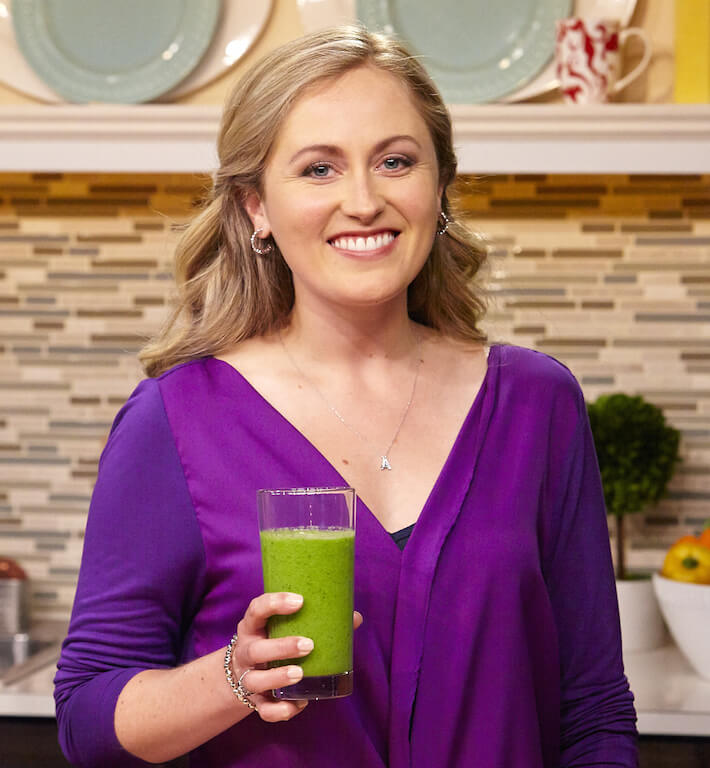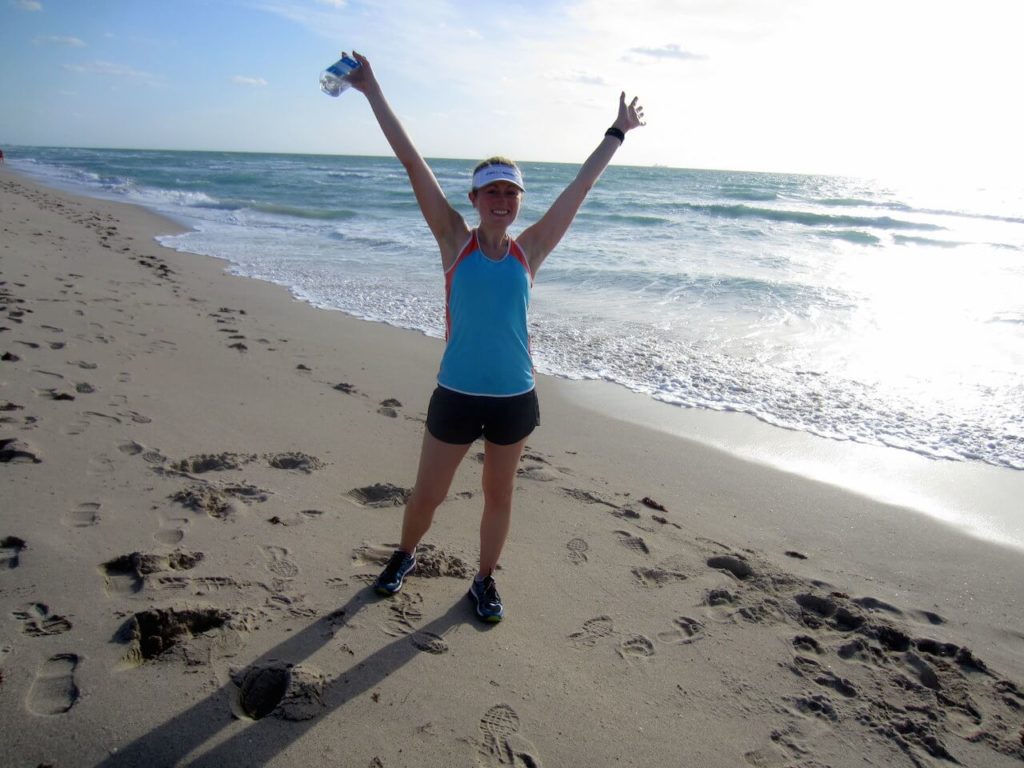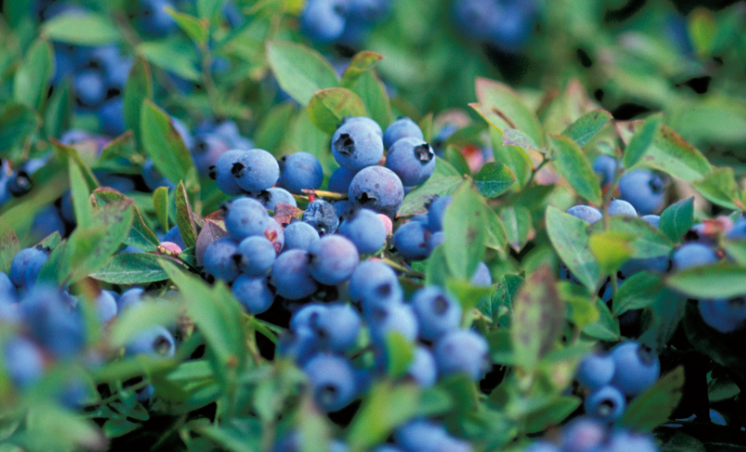Getting Wildly Healthy with Anne Mauney
This month we are excited to introduce our Getting Wildly Healthy Series with Anne Mauney. Anne is a Washington, D.C. based registered dietitian, author of a food and fitness blog, and marathon runner who is absolutely passionate about helping people get healthy. She has a Masters of Public Health in Nutrition and owns a private practice where she helps clients to lose or maintain weight, feel healthier, and improve their relationships with food. We sat down with Anne to talk about what motivates her to stay fit and what she sees as her clients’ biggest obstacles for achieving optimum health. Anne’s Getting Wildly Healthy Series will be featured this January through April. So keep your eyes peeled here on the blog, and also on the Wild Blueberries Facebook Page.

What motivates you to eat well?
Feeling good is the biggest motivator for me. I definitely notice a difference if I am treating my body well versus when I start to get out of balance. This is not to say that I discourage indulgence – I think it’s important to balance healthy food with some treats, too – but I definitely notice when the combination is tilting in the wrong direction. For me it’s all about feeling good but enjoying my food as well.
What made you want to be a Registered Dietitian?
I was working in communications and public relations and I liked what I was doing, but I wanted to interweave communications with more one-on-one connection to people. For me, going back to school and pursuing a masters degree in nutrition allowed me to start having a direct impact on people’s lives.
How did you know this was your calling?
It was a slow progression for me. I thought about a psychology degree. Then I started getting more into nutrition. Then I thought about teaching (and tried it, in Prague, which was a blast – I also ended up teaching nutrition at George Washington University last year). What it all came down to was that I wanted to be connecting directly with people and making changes in their lives, and I felt nutrition was the best way for me to do that.
How do you help clients who want to get healthy?
First of all, I encourage them to ditch the diet mentality, to eat what they like to eat, and get back to what they actually enjoy. People focus so much on counting things and rules around food that they forget that food is meant to be for pleasure. I help clients with “intuitive eating,” which means being more mindful and listening to your natural hunger and fullness cues. Many people don’t allow themselves to eat when they are hungry, which backfires later, leading to them feeling unhappy and out of control.
What tools do you suggest for intuitive eating?
First, it’s imperative is to have a substantial breakfast. The biggest mistake I see with clients is that is they take a diet approach in the morning, which often includes things like refined carbs and foods that are low in calories. Similarly at lunch they try to be “good” with their choices. The problem with this formula is that if you cut back at breakfast and skip a mid-morning snack, then you are likely starving by lunchtime. Then if you are conservative at lunch, by afternoon you end up feeling totally unsatisfied and are hitting the office cookie or candy jar. This is recipe for disaster.
How does one avoid disaster?
The first thing is to front load calories – eat more earlier in the day. This allows you to feel better and enjoy more stable energy. It also reduces stress in the afternoon. For example, if you are having instant oatmeal with hot water, add some protein and fat. I suggest using whole rolled oats instead of instant, add a banana mashed in for flavor, Wild Blueberries for antioxidants and fiber, and top it off with milk and nuts for extra protein and fat. Then, focus on listening to your hunger cues. If you are hungry, have something. Don’t ignore your hunger cues and try to wait simply because it’s not “meal time” yet. Get rid of those arbitrary rules! If you get over-hungry, it’s much harder to eat intuitively.
What are the biggest obstacles to success?
The main thing is getting rid of those rules. After years of dieting, it freaks people out to eat more food earlier in the day and to eat what they want. Sometimes at first, this means eating more unhealthy things but that’s just part of the process. Once you have gotten used to it, those formerly forbidden foods lose their power and become less desirable. When the guilt is removed and you start to focus on what you are eating, then you can pay attention to what feels good. This takes time, but it’s worth it.
What are some tips for intuitive eating?
If you want to try intuitive eating, the first step is to think about what you actually like. What would you enjoy at breakfast? Then, have that. Next, listen to your body. When you start to get hungry again, have a snack – don’t wait. Allow yourself to have what you really want versus what you think you “should” have. It can help to keep a food diary – not with any specific proportions or calories, but just notes on what you had (e.g. toast with nut butter/banana), and include a column for hunger before, fullness after, and emotions around meals/snacks. This can really help you to start to see patterns in the day, like – oh, I always get over-hungry in the afternoon because I wasn’t satisfied by lunch. Or, oh, I’m emotionally eating at x time of the day because of y. Keeping a journal like this is a great way to start to get more in tune with your body.
What motivates you to keep fit during the winter?
For me it’s all about making sure I do things that are fun and diverse. I love yoga, I love boot camps, I love running (but only outside, not on a treadmill). Many people feel pressured to do certain exercises simply because other people are, but it’s important to find what you enjoy. Also, try doing exercise with a friend. I pretty much only work out with other people. Occasionally, I swim or do yoga by myself. But scheduling exercise with a friend makes it a lot more fun and makes me way less likely to bail. Especially for those early morning classes!

Where do you find your inspiration for recipes?
The funny thing is that while I have a food blog, I don’t absolutely love cooking – especially not complicated, long-winded recipes. As a result, the recipes on my blog are very simple – not a lot of pots and pans, not a lot of steps, not a lot of ingredients, but keeping it as easy and approachable as it can be. As for recipe creation inspiration, it’s all over the place. When I first started my blog, I shared a lot of recipes I had been making for a long time. Now I might be inspired by something on Pinterest or something that a friend is making. For me, it needs to be easy.
What do you recommend for clients who want to stock their kitchen?
I don’t have a standard list, but generally recommend stocking up on whole grains like quinoa, brown rice, oats, etc. I really like to keep 90 second brown rice, frozen fruit, like Wild Blueberries, and veggies on hand; also canned beans to toss into meals last minute for cheap protein, as well as nuts and seeds to snack on, etc.
Want to try some of Anne’s recipes? You can visit her blog, here – or stay tuned for our upcoming post series featuring Anne’s recipes and nutrition advice!

